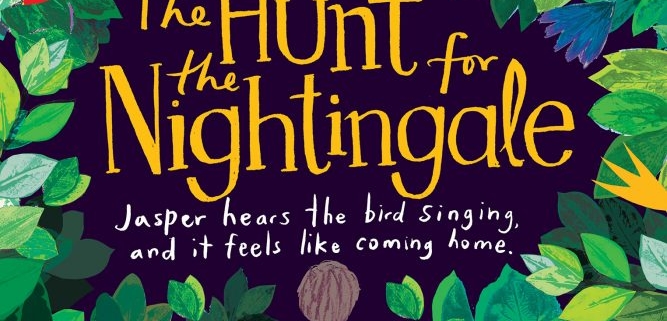The healing power of Nature
A powerful blog post from Sarah Ann Juckes about her book, The Hunt for the Nightingale, “a love letter to the natural world”. Beautifully written! Thank you Sarah for this piece!

The natural world holds beautiful, wondrous things that can teach us all about kindness, love and joy. It can also help us come to terms with more difficult emotions too, such as loss, anxiety and loneliness, and it’s because of this that I decided to use nature as key theme in The Hunt for the Nightingale.
The Hunt for the Nightingale is an exploration of loss in all its forms. Nine-year-old Jasper has been taught that migratory birds such as the nightingale go away each summer, but then come back each Spring. So when he is told that his sister Rosie has ‘gone to a Better Place’, he believes that this loss too will come back to him. He just needs to find the ‘Better Place’.
Throughout the book, the landscapes he walks through and people he meets help Jasper come to terms with loss in different ways. There are exciting things to learn about camouflage, to lose himself in his surroundings like the American Bittern. There are lessons to be taken from Barn Owls, that can find things in the darkness by using their wonky ears. There are also lost dogs, remembered pets, far-away fathers, and – finally – the loss of a family member.
Death and grief are a natural part of life for people of all ages, but not one that gets any easier to come to terms with. In the last few years particularly, more children will have been affected by this and it’s more important than ever for them to have a safe place to explore these feelings.
During lockdown and travel restrictions, many of us were forced to find this safety and joy in the world right outside our front door, and I’ve met many children who have discovered beautiful things close to home that they might never have found before. There are birds in our garden, tree-lined paths close to home and parks open to us to explore.
Through nature, we can discover the beauty of different lives and see death as something that is a natural part of this. As Jasper learns, the death of animals is a necessary part of sustaining further life. It can give insects a home, which can give birds a meal, which can help a vixen feed her cubs. And it can spark new beginnings for people too, such as friendships and the found bravery to ask for help when you need it.
When I volunteered for the NSPCC, I met hundreds of children who were dealing with complex emotions such as Jasper. The NSPCC’s advice is the same as the message in The Hunt for the Nightingale – that speaking to a trusted adult can help us stay safe. Jasper’s journey helps him understand what it means to lose his sister, but also that he’s not alone. No bird on earth is completely silent, and nor should we be when it comes to communicating our worries and concerns. And Jasper finds that when he does speak out, other people are there waiting to listen.
This book is a love letter to the natural world and one that I’ve really enjoyed immersing myself in. Through it, I’ve found immeasurable joy in the natural landscape close to my home and learned new skills such as map-reading, bird-watching and even how to walk through a cow field without feeling afraid! The book has been beautifully illustrated by the brilliant Sharon King-Chai and the audio edition includes birdsong throughout. It’s my hope that this book be a joyful thing to read for people of all ages, as well as one offering a valuable message about the healing power of nature, and how important it is for us all to help protect that for generations to come.
The Hunt for the Nightingale by Sarah Ann Juckes, illustrated by Sharon King-Chai is published by Simon & Schuster Children’s Books and is available now!





Leave a Reply
Want to join the discussion?Feel free to contribute!